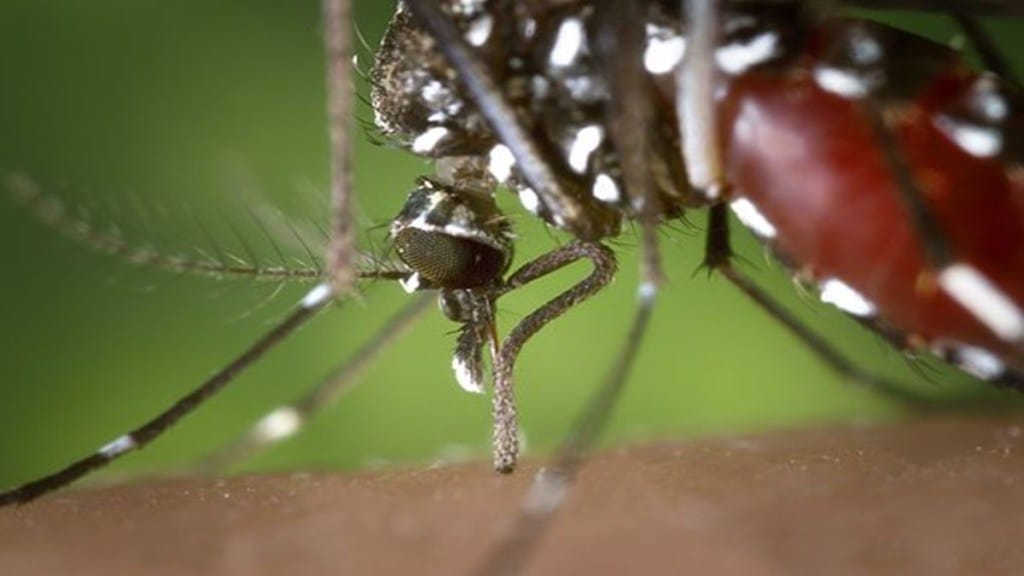Dengue outbreak in India: The rise in Dengue cases in India has become a cause of concern among health experts. In Gurgaon, a new dengue strain has been found in more than 50 percent of the samples sent for sero survey.
According to reports, out of the 50 samples, 26 had the DENV-2 strain. Experts maintain that this strain causes a sudden drop in platelet count, high-grade fever and rashes among patients. In some cases, the strain can lead to internal bleeding and hemorrhagic fever.
In West Bengal, State Health Secretary Narayan Swaroop Nigam said that at least 1,500 dengue patients have been admitted to government hospitals in the state so far. According to media reports, 25 of these 1,500 dengue patients are critical.
Between the second and third weeks of this month, about 800 new cases of dengue have been reported in Kolkata. According to a statement issued by the state government on Sunday, There has been a sharp rise in dengue infections in North 24-Parganas, Howrah, Hooghly, Nadia, Murshidabad, Malda and South 24-Parganas.
“There are 4 subtypes of dengue virus and a person can become infected with one subtype only once in their life following which they develop immunity for that particular subtype. Subsequent infection with a different subtype increases the risk of severe complications. In a recent survey, it was found that the majority of the cases of dengue this year are due to DEN V 2 strain. DENV 2 is known to cause dengue hemorrhagic fever which is a severe form of dengue,” Dr Tushar Tayal, Consultant, Internal Medicine, CK Birla Hospital, Gurugram told Financial Express.com.
According to Dr. Tayal, the initial symptoms of dengue are high-grade fever, headache, pain behind the eyes, nausea, and joint pain which last for approximately 5 days. By the end of this period, the critical period starts where the BP falls, fluid accumulates in the lungs and abdomen and rash develops, he said.
“There may be a precipitous fall in platelets with an increase in Hemoglobin due to fluid leakage and some patients may also show bleeding manifestation. It is extremely important to identify these symptoms and hospitalise the patient urgently as these symptoms may be life-threatening. This period is followed by the recovery phase which lasts 3-4 days,” he said.
‘Situation is under control’
According to Dr. Anurag Aggarwal, Consultant, Internal Medicine, Fortis Escorts Hospital, Faridabad, the situation is under control, not many patients are reporting severe disease and chances of platelet transfusion and occurrence of fatal complications are not as frequent as it was in the epidemic 2 years back.
“Since the epidemic of dengue is a usual occurrence at 4-year intervals, this year till now is relatively not difficult to saturate the health care infrastructure. Common complications reported with Dengue are shock and bleeding/hemorrhages with rare occurrences of other complications like meningitis, renal dysfunction, or hepatic impairment. Since the cases have only recently started in the last 10-15 days, the trend is yet to be seen in the coming days,” Dr. Aggarwal told Financial Express.com.
‘People are resorting to a lot of home remedies’
According to Dr. Tayal, every year we see that people resort to a lot of home measures for increasing platelets such as papaya leaf juice, and giloy.
“Papaya leaf juice is highly unpleasant in taste and may lead to further vomiting and loose stools which can worsen the underlying dehydration. A scientific study found that papaya juice has flavonoids and antioxidants, which are also found in all fresh fruits and vegetables,” Dr. Tayal told Financial Express.com.
So instead of drinking papaya juice, we should encourage the patient to have fresh fruits, vegetable soup, and coconut water to boost immunity, he said.








